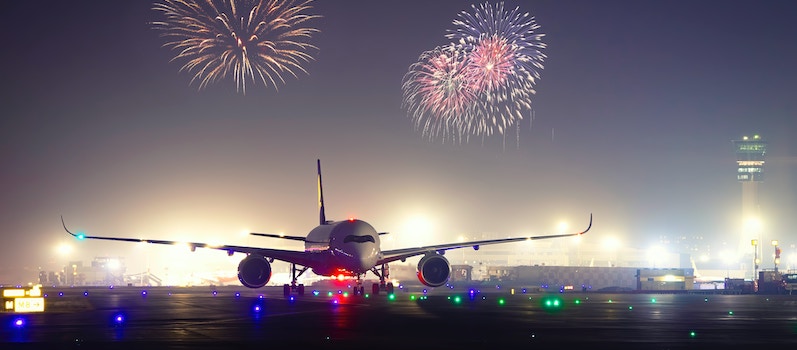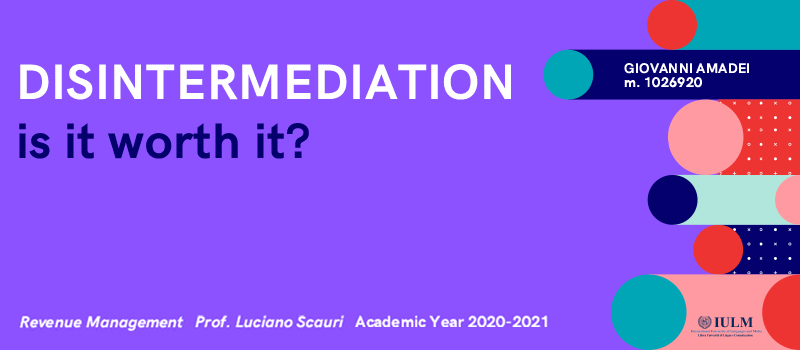Strategies to increase direct bookings for independent hotels
I welcome the contribution of one of the most brilliant students I have ever had the honor and privilege of following: Yernar Kabil
Chapter 1 – Direct Booking Wars and its impact on Independent hotels
There are always two ways of looking at things – from inside and outside. It also applies when travellers are trying to reserve a hotel room for their upcoming trip. Before joining the Reservations Team, booking accommodation for my next travel was just a fun and unmissable part of the adventure. You go to the internet, type the destination, start comparing given properties, compare the prices, and sometimes double-check if the same choice is cheaper anywhere else. I always found it amusing entertainment as it provides a feeling that trip has already begun. Little I knew back then that mighty battles are going on behind the curtains, and they are just getting stronger with every day. The way I see it from the prism of my experience gained until now, these so-called “direct booking wars” have been raging since the status quo of big Online Travel Agencies (OTAs) was challenged. Throughout the last decade, the commissions of OTAs have shrunk significantly. Although the exact amount of decrease depends on the particular agency, region, property, the experts’ highlight that in 2007 the commissions of major OTAs were around 20% to 30%, whilst nowadays we talk about figures between 10% and 20%. But by whom are they challenged? First and foremost, by large international hotel chains themselves. In the last five-six years, several affluent brands have launched a series of extravagant marketing campaigns encouraging travellers to book direct. Below are some of the examples:
- Hilton Worldwide – Stop Clicking Around
- Best Western – Better Book Direct
- Marriott International – #ItPaysToBookDirect
- Choice Hotels – “Badda Book. Badda Boom.”
It is crystal clear that this multimillion investment is due to the indispensable benefits of direct bookings. Not only the commission amount that otherwise would have gone to travel agents, this way remains in the owner’s pockets, but also it gives better control over the reservation itself. Booking made directly may potentially lead to a supreme guest experience through personalised service. Moreover, it is much easier to manage the direct reservations as there is no need to go through all the intermediaries involved. However, it is not only that. Each year, more and more hotel chains, including those mentioned above, try to divest their assets, claiming that their business model is more profitable when they do not own the property they are branding. These chains are transforming into mono-branded OTAs managing the business of the members under their network. It is another reason explaining such massive investments into direct booking campaigns and also to loyalty programs. In many cases, every booking made directly through the brand’s reservation system makes the hotel owner pay the reservation fee (can be a wide range between 1,0-5,0% of room revenue and even higher). For example, in the case of Marriott brands, there is also a loyalty fee (typically around 5,0%) in case a reservation is booked by a brand’s loyalty member, i.e., Marriott Bonvoy. These costs are part of so-called franchise fees that are applicable for branded hotels. Together with other costs mandated by the brand (e.g., marketing fees, initial fees) and all kinds of miscellaneous expenses, therefore, going branded might just not as lucrative as it seemed at the beginning.
Chapter 2 – The Purpose of the Paper
According to industry experts, independent hotels often have more to lose in this ongoing battle for direct bookings due to a lack of corporate support that can back financially and technically. In addition, other important players such as Airbnb and Vrbo are not to be overlooked as well. However, at the same time, thanks to their more flexible nature, independent hotels also have more opportunities to take prompt actions to align with ever-changing guest demands. And what I see from the practice of the best performing independent hoteliers is that they drive more direct bookings by connecting all of their systems and gaining deeper insight into their guest needs. They understand that personalisation and interacting with their guests on a one-on-one basis drives significantly more direct reservations and increases repeat business. Rather than a disadvantage, independent hoteliers might use the current situations to their advantage. This paper aims to create a list of suggestions by applying which independent hoteliers may strive for more direct reservation. The trend for an authentic local experience, advertising tools becoming more advanced and franchise fees constantly increasing – all these factors may lead to many hoteliers preferring not to take the side of the majority and stay independent rather than branded.
Chapter 3 – The Technical Aspects
Our travel habits are continually evolving, and we all became somewhat new travellers. We cannot imagine our travel without technology; it is now an irreplaceable part of the trip and often even a driving force. Digital technology is now the predominant power in achieving more direct bookings and therefore is the primary aspect to look at and concentrate on. The list of suggestions below can serve as a help to independent hoteliers in striving for more direct bookings:
1. Mobile-friendly hotel website: Top of the list goes to investing in a mobile version of the hotel website. With over half of travellers using their smartphones during the travel planning process, a mobile-friendly website is no longer optional to compete but an absolute must-have. As global mobile usage continues to grow, more and more travel bookings are happening via smartphone (over one-third of travellers use mobile to book a hotel room). According to Hotelogix.com, mobile hotel bookings have increased by 1700% between 2011 and 2015. Simply put, this data indicates an absolute necessity of going mobile-friendly. The more accessible or reachable you are, the higher opportunity there is to acquire direct hotel bookings. Moreover, speaking of being mobile-friendly, there are following two terms that often come up: • Responsive design: to ensure the hotel’s website performs smoothly on all mobile devices and also tablets. It is necessary to automatically resize every page to fit each device’s screen, so visitors do not have to drag from side to side trying to adjust. • Mobile optimisation: does not refer to resizing but rather to customising the content to the needs of mobile users, for example, making a phone number on your mobile website clickable so that your customer has an option to call you with one click.
2. Integrating a Booking Engine to the hotel website: After making the website responsive, the next big step of vital importance is to make the rooms bookable. Many face the dead end right here, in this step. This happens when the booking engine is not integrated with the website. A hotel booking engine (or in other words, ‘hotel reservation system’) is software integrated on the hotel’s website and sometimes even in social media pages that help acquire and process commission-free direct bookings. With so many hotel software companies offering their booking engines, it may become challenging to choose one. It is highly advisable to choose the one considered the best in that particular market, and it should also be: • User-friendly and easy-to-use; • Interactive to keep visitors enticed on the website; • Efficient to handle various rates and packages with no hassle; • Multilingual and preferably also multi-currency; • Engaging to communicate with guests during pre-arrival, in-house and post-departure; • Able to provide statistics, logs and reports; • Able to monitor competitors’ rate.
3. Call to action (CTA) and Click to call (CTC): The fundamental role of this step is to grab attention and push towards real action. It is a ‘Book Now’ button in simple words. After exploring the hotel, its services, the gallery, there should be a clear directive on what needs to be done next. These also include “Buy your escape now,” “make your reservation now”, or “call us now.” It is often regarded as a tipping point where a possible booking either bounces back or converts.
4. Social proof: Nowadays, guests rarely check their stay without checking the trustworthiness of the hotel first. Many travellers go deep and analyse the hotel ratings and rankings, client testimonials, social media followers, etc. Therefore, it is highly recommended to highlight some excellent reviews left by former guests, accolades received, and ratings given by such reputable industry players as Tripadvisor, Booking, etc. These factors work as a proof for potential guests, and displaying them ensures that the hotel is well known and trusted. To implement the social proof, one can use:
- Testimonials
- Ratings and reviews
- Badges, awards or certificates
- Kind words from an “influencer” or famous individuals
5. Give the chance to compare: Parallelly with checking the reviews, many guests tend to go through several channels to compare the prices. They wish to have the reassurance that they are selecting the most profitable (the lowest) rate for the room category chosen. It adds value and increases the probability of guests booking directly if the hotel’s website provides this visual comparison.
6. Channel Manager (CM): Integrated booking engine, optimised website, and other strategies mentioned earlier may be enough; however, having also a channel manager will serve as a final piece of the puzzle. Shortly, it is a tool that allows to sell all the rooms on all the connected sites simultaneously. It automatically updates the availability in real-time on all sites when a booking is made, when a room is closed for sale, or when bulk changes are made to the inventory. Although CM is used to connect to OTAs for increased global distribution and reservations, it also holds an extra benefit which can be called as ‘the Billboard Effect’. A hotel receives much bigger visibility when it has its rooms listed on a significant number of OTAs. In this way, travellers from all around have the chance to book the room through the OTA, or they may choose to do it directly on the hotel’s website in the hopes of finding a better deal, package, promotion, or more information. It increases in direct booking numbers, which would not have occurred if the hotel did not distribute its rooms across the OTAs and gained visibility.
Chapter 4 –Meta Search: Benefits & Campaigns
Metasearch is no longer the wave of the future but of the present. It is now a vital reality that can no longer be ignored by independent hotels seeking direct booking business. In the field of tourism, the term “metasearch” refers to online platforms that collect prices and availability of accommodation facilities on multiple portals and compare them with each other, offering the travellers the opportunity to book from different channels, including OTAs and official hotel website. The biggest and most popular ones are Google Hotel Ads, Trivago, Tripadvisor. But there are many more: Kayak, Momondo, Skyscanner, Escapio, Holidaycheck, Wego, etc. The benefits of using metasearch advertising Meta searches have become one of the main channels used for travel planning and therefore offer worldwide visibility, which is difficult to reach by own means.
Their strength lies in being intuitive and practical and presents the user with a convenient service: the straightforward comparison of the offer, accessible from any device.
- Increase in direct sales
- Increased Visibility
- Reduced Cost per Booking: some distribution channels require hotel commissions even higher than 20%, and if we add the discounts needed for the various marketing programs, the acquisition cost can exceed 40%, thus increasingly eroding the hotel’s operating margins. On the other hand, metasearch websites work on a different business and pricing model; therefore, they offer a better return on investment (ROI).
- Own the Guest Data: from the first contact, there will not be, as happens with Booking.com, for example, a generic email that hides the customer’s data. These will be clear and available; later, this can offer a better, personalised service and create opportunities for upselling and cross-selling.
- Brand protection: the hotel is still present on the metasearch regardless of the decision to claim the presence or not. The OTAs spend a large chunk of their budget on advertising 7 (billions of investments), thus appropriating the hotel’s brand name in the delicate and critical phase of reservations. Simply put, OTAs are focusing on metasearch websites to sell hotels. In this way, the OTAs grabbing the booking, even if the user has searched with the hotel’s name.
- Diversification of the distribution mix: meta searches are definitely worth considering for expanding distribution, reaching different markets and direct selling opportunities
- Increased bookings from other channels: a traveller is planning his trip consult dozens of sites before making a reservation. Metasearch searches are not always the last channel consulted, but when among the last, they represent a decisive moment in the travel planning phase. If metasearch presence is well managed, the reservation could also arrive in the form of a direct phone call or email.
The typologies of the Campaigns: CPC, CPA, CPR
The metasearch campaigns function primarily on the CPC (Cost per Click) base. However, on Google Hotel Ads, there is also another type of campaign called CPA (Cost per Acquisition).
CPC – is when the advertiser pays every time the user clicks on the ad. The cost will never be higher than the set offer. It is ideal for those who want to bring traffic to their site and currently offers a better ranking in the search results made by the user. The more clicks you get, the more chances we will have to get bookings. This type of campaign allows for detailed setup for each channel, especially for Google, and enable the hotel to define and optimise conversion over time.
CPA – in this campaign, the hotel pays every time a traveller clicks on the ad, enters the site and makes a reservation. It is, therefore, a commission model. Google acts like an OTA by requesting a percentage for each reservation completed, even if the reservation is cancelled later. The hotel can choose the commission percentage, which will affect the channel’s visibility to the hotel. A higher percentage will place the hotel in a higher position than the other OTAs’ offers. The advantage is that you only pay if you sell. The other side of the coin?
PPS – stands for “pay per stay” and is the newest campaign of all three. Unlike CPA, the hotel will pay Google the percentage only on bookings that materialise successfully. This model resembles OTAs that provide a commission for the bookings used, but the guest books directly on the hotel’s website. Google asks for a double verification by the hotelier. At each checkout, the hotel must communicate any no show or change to the reservation. Google will only charge commission on successful bookings. The percentage is at the discretion of the hotelier: 5%, 7%, 15%. Obviously, the lower the commission, the less interest Google will have in marketing the hotel. Usually, hoteliers choose between 10% and 14%.
The case of Helvetia Hotel in Saint-Petersburg, Russia
To have at least a bit of the qualitative research in this work, I contacted the Helvetia Hotel in Saint-Petersburg, Russia. This 80 rooms property located right in the heart of the Russian Cultural Capital is one of my most adored hotels. I have not had the pleasure of staying there yet; however, the appraisals of its guests about the service quality is immaculate. A fascinating aspect of this hotel is that its General Manager and Owner at the same time, Mr Yunis Teimurkhanli has become a brand of 8 its own. He was able to utilise his professional experience and connections to establish himself as a focal point of direct bookings that arrive in Helvetia Hotel. Thus, his personal Instagram account counts 24.7K followers, while the official page of the hotel itself is almost twice as less – 13.9K. According to them, the outstanding popularity of the owner dramatically contributes to a favourable ratio of direct bookings: 70% against 30% of OTAs. They also mentioned that they do receive reservations from metasearch engines time by time; however, they do not take advantage of any paid campaigns. It again clearly shows that there are ample possibilities for independent hotels in reaching direct bookings. Of course, the budget is always the most vital point; however, some creativity and imagination make wonders if used correctly.
Bibliography
Grant, T. (2019, February 4). The 5 Hidden Costs of Being a Branded Hotel. Revenue Hub. https://revenue-hub.com/hidden-costs-branded-hotel/ eZee Editorial Team. (2021, April 6). 14 Ultimate Ways to Increase Direct Hotel Bookings on Website. EZee Absolute. https://www.ezeeabsolute.com/blog/increase-direct-hotel-bookings/ Net Affinity. (2020, August 31). 18 Ways to Boost Hotel Bookings and Get More Revenue. Net Affinity Blog. https://blog.netaffinity.com/18-ways-to-boost-hotel-bookings-and-get-more-revenue/ Khandelwal, R. (2021, February 2). A Guide to Direct Bookings to Take Control of Your Business During the STR Crisis. PriceLabs. https://hello.pricelabs.co/a-guide-to-direct-bookings-to-take-control-of-your-business-during-the-str-crisis/ McCarthy, A. (2019, August 26). 5 Ways Independent Hotels Can Fight For and Win Direct Bookings. Skift. https://skift.com/2019/08/29/5-ways-independent-hotels-can-fight-for-and-win-direct-bookings/ Kennedy, D. (2021, March 10). The Battle For Direct Bookings Is Hand-to-Hand Combat, Not Aerial Strafing. Hospitality Net. https://www.hospitalitynet.org/opinion/4103389.html








